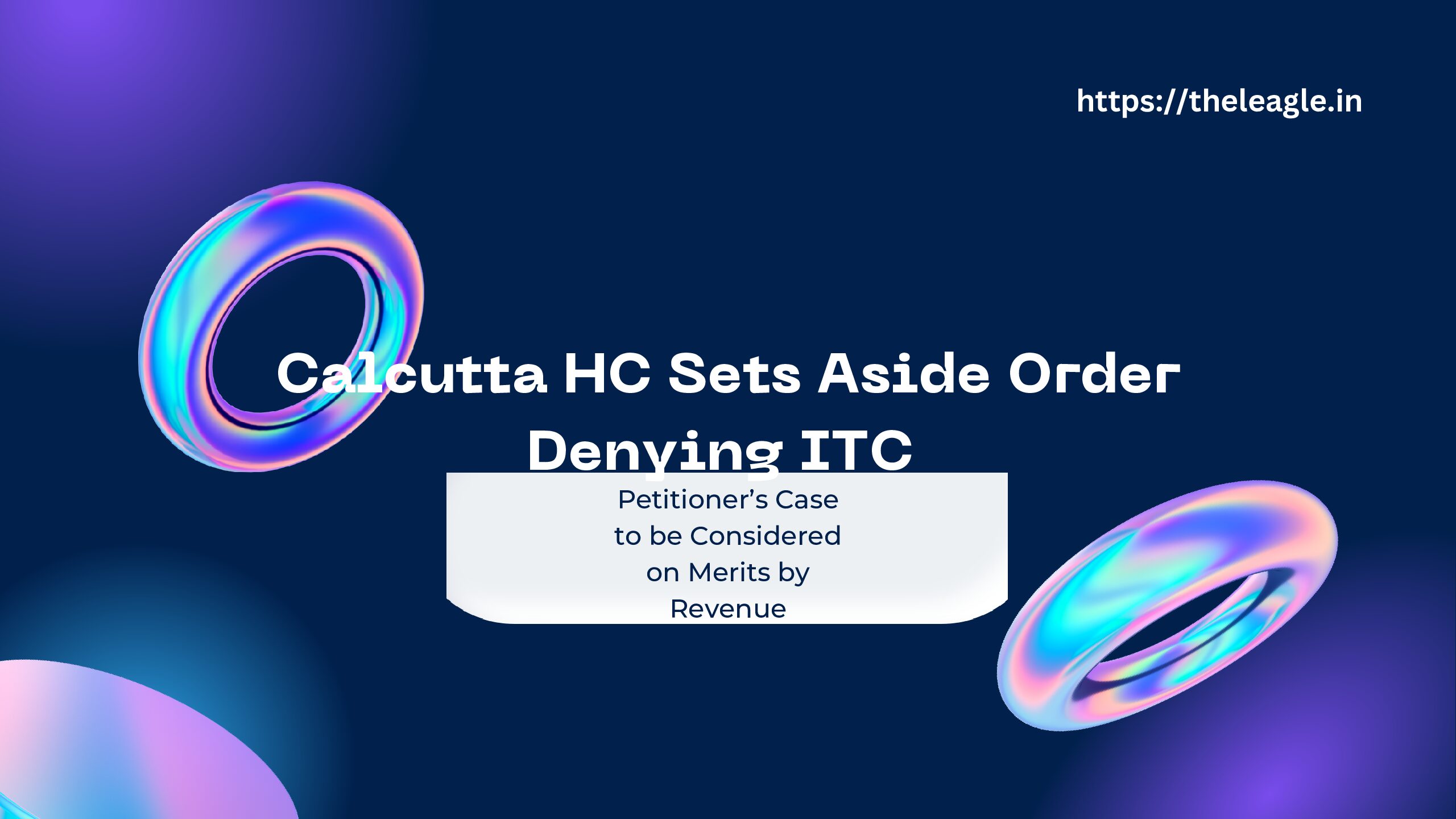In a recent judgment[1], the Calcutta High Court set aside the order of the Revenue Department wherein the ITC of assessee was disallowed on the ground of mismatch in GSTR-2A and GSTR-3B. While Courts have, of late, been consistent in their stance that the mismatch in details between GSTR-2A and GSTR-3B cannot be a ground to deny ITC. In the impugned case, the High Court made similar observations suited to the facts of the case.
Facts
In the impugned case, the assessee was registered under the Central Goods and Services Act, 2017 and the West Bengal Goods and Services Act, 2017. The assessee purchased several bidi leaves from various suppliers. In January 2021, physical inspection of the business premises was assessee was carried on and thereafter proceedings against the assessee were initiated under Section 73, CGST Act, 2017. Eventually, an order was passed against the assessee which was confirmed on appeal. The order rejected ITC claim of the assessee on the ground that the there was mismatch of ITC claimed in GSTR-3B and the same was not reflected in GSTR-2A.
Arguments and Decision
The assessee claimed that ITC was denied and order passed against it without considering the documents, without providing the assessee an opportunity of being and also alleged violation of principles of natural justice. The assessee claimed that the transactions relating to purchase of bidi leaves were genuine and ITC cannot be denied on the ground that one of the suppliers errenously mentioned the wrong GSTIN number of the petitioner in the invoice. The assessee further argued that one of its suppliers had erroneously mentioned a B2B supply as a B2C supply and these errors could have been easily rectified by the State.
The State countered the assessee’s assertion of violation of principles of natural justice enthusiastically. It argued that the assessee was served multiple notices to appear before it and present its case, but it either failed to appear or adopted delaying tactics and did not produce the relevant invoices. The Calcutta High Court with the State on this count and noted that fairness cannot be ‘a one way street’ and that the assessee cannot adopt an implacable approach and refuse to appear before adjudicatory authorities only to later complain of violation of principles of natural justice.
Nonetheless, the Calcutta High Court observed that even in an ex-parte order, an adjudicating authority should proceed on the basis of records available and deal with the appeal on merits in accordance with the law. It observed that:
Any mismatch ought to have been attempted to be ascertained from the records of the respondent authorities and their online portal. (page 6)
The Calcutta High Court then referred to a Circular issued by CBIC on 27 December which inter alia provided for the approach to be followed by the Revenue Department where the supplier reports a supply as B2C instead of B2B in their GSTR-1. Since the steps prescribed in the said Circular were not followed, the High Court set aside the order denying the assessee’s claim of ITC.
Conclusion
While the Calcutta High Court’s order in the impugned case cryptic and is unlikely to be considered as ‘landmark’, there are three important issues that need to be underlined here: first, that the High Court’s observation that authorities should not deny ITC to assessee on cavalier grounds such as basic errors in GSTR-2A and should verify the claims of assessee by relying on their records and verifying from the online portal; second, the High Court’s emphasis on considering the relevant law and procedure even when passing an ex-parte order; third, the need for the Department of Revenue to follow the procedure and steps prescribed in its own Circulars and not act in violation or at least in defiance of those steps. It is important that other Courts note the aforesaid aspects in the impugned judgment and build on them to create a body of jurisprudence that holds that State account for denying ITC on flimsy grounds.
[1] M/S Makhan Lal Sarkar and Anr v The Assistant Commissioner of Revenue, State Tax B.I. and Ors WPA/2146/2023, decided on 18.09.2023.
